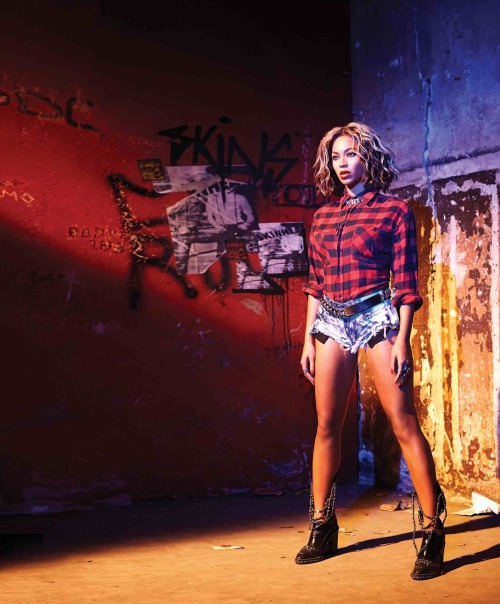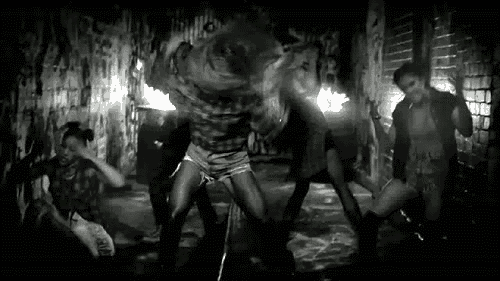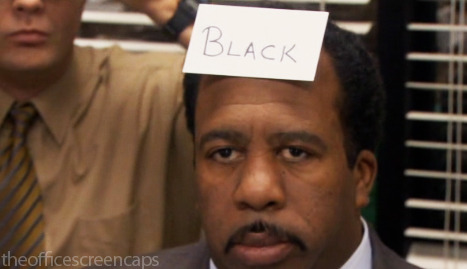006. ***F L A W L E S S

If you haven’t been living under a rock for the last week then you’re well aware of the monster Beyoncé unleashed on the world last Friday at midnight. If you have been living under said rock then I’ll catch you up. On December 13, 2013, Beyoncé Giselle Knowles-Carter released her fifth studio album entitled BEYONCÉ, causing damn-near the entire world to freak out. Myself included. News broke just as the lights were dimming in the theater at the midnight premiere of The Hobbit: The Desolation of Smaug I attended, rendering me powerless until the next morning.
When I finally had a chance to listen to the album, I I fell in love. I feel like this is the first time we’re seeing the human side of Beyoncé. We’ve seen glimpses of her personality over the years in interviews and behind-the-scenes clips but it always seemed like she was holding back a bit. Like she wasn’t quite sure if we could handle her Flaws & All (See what I did there?). But this album is different. I feel like this one is really Beyoncé for real-for real. And while all the songs on BEYONCÉ are freakin’ awesome, there was one track that stood out to me the most. Track 11, *** Flawless. The song features this quote from Chimamanda Ngozi Adichie’s “We Should All Be Feminists”:
We teach girls to shrink themselves to make themselves smaller. We say to girls, ‘You can have ambition but not too much. You should aim to be successful but not too successful otherwise you will threaten the man.’ Because I am female I am expected to aspire to marriage. I am expected to make my life choices always keeping in mind that marriage is the most important. A marriage can be a source of joy and love and mutual support, but why do we teach girls to aspire to marriage and we don’t teach boys the same? We raise girls to see each other as competitors, not for jobs or for accomplishments, which I think can be a good thing, but for the attention of men. We teach girls that they can not be sexual beings in the way that boys are. Feminist: A person who believes in the social, political and economic equality of the sexes.
It was like the heavens opened and a choir of angels sang, accompanied by a wicked electric guitar riff when I heard this bridging Bow Down into ***Flawless proper. I felt like:

source: wavvey-tare.tumblr.com
This seconds-long clip summed up everything I believe in so perfectly and drove home the idea that I am a feminist. As a child of the 90’s, I grew up on the Spice Girls. At 9, I bought into the concept of “Girl Power” wholesale. To kid!Brit, “Girl Power” meant I could be anything I wanted to be. I was awesome, smart and just as good as my boy counterparts. My “Girl Power” often showed up in gym class where I went above and beyond to crush my crushes to prove I was their equal. The Spice Girls had planted a seed but growing up, feminism was always depicted as something bad in popular culture. Feminists were always presented as a group of shrewish, unshaven women who were suffering from Freudian penis envy if not misandry. Those unsavory stereotypes deterred me from claiming my spot on the team for quite a while even if though I believed and agreed with the central tenets of the movement.
Feminism seemed to become more accessible to me over time. Probably since I had grown up and was capable of digesting and processing theories with age. In recent years, feminism seems to be the thing. And you know what? I’m absolutely here for it. By including Chimamanda Adichie’s speech, Beyoncé helped some things click in my head. A light turned on. Cogs began to churn.
I began thinking about feminism and how it relates to my writing. I began thinking about the stories I want to put out into the world for young women (and possibly some young men) to consume. Ideally, I want to write stories that invoke the spirit of Run the World (Girls)— tales of young women who do great things. But upon further thought, my definition of “great things” seemed to be novels about girls who come through strong like a sword-wielding Xena riding into battle. Kick-ass girls who do kick-ass things. I was kind of buying into the whole Strong Female Characters thing and eh. Not everything has to be kick-ass. Being chill and vulnerable are desirable character traits as well. Katniss Everdeens and Olivia Dunhams can exist with Bella Swans and Sansa Starks. They’re all good. I had to think a little longer and was able to determine I want to write books that encompass all of those things while considering who my characters are as people and their role in their story. One thing I’ve come to learn about writing is, my views may not be my characters’ views. Everything has to make sense narratively.
Ultimately, I want to write stories that don’t sell teenage girls short. Teenage girls already get so much crap from society. They are the butt of so many jokes and snide comments. Read most articles about YA lit and you’ll see what I mean. I want to create things that inspire new ideas. Full disclosure, not everything I write has substance as you’ll soon learn. Some things are for giggles and light-hearted eye rolls. But for the things that are meant to have purpose, I want to make sure the reader has something to take with them.
